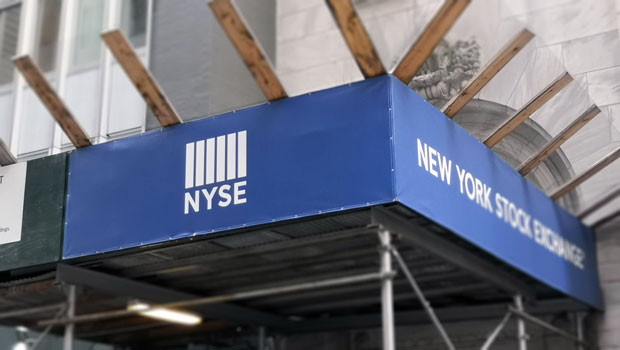US pre-open: Futures in the green following heavy sell-off in previous session

Wall Street futures were pointing to modest gains ahead of the bell on Tuesday following a selloff driven by elevated oil prices in the previous session.
As of 1210 GMT, Dow Jones futures were up 0.43%, while S&P 500 and Nasdaq-100 futures had the indices opening 0.49% and 0.24% firmer, respectively.
The Dow closed 797.42 points lower on Monday and the S&P 500 delivered its worst day since October 2020 after oil prices surged to a multi-year high amid the ongoing Russia-Ukraine war, heightening fears the conflict will slow the US economy and raise inflation.
West Texas Intermediate prices, which ended the previous session 3.2% higher, were up another 3.1% in pre-market hours at $123.15 per barrel, while international benchmark Brent crude, which hit its highest price since July 2008 on Monday, was also up 3.4% at $127.36 a barrel.
The increased commodity prices come as market participants continue to monitor developments of escalated geopolitical tensions between Ukraine and Moscow, with the former stating Moscow was attempting to manipulate the pair's ceasefire arrangement by allowing Ukrainian civilians to only evacuate to either Russia or Belarus.
AvaTrade's Naeem Aslam said: "The biggest factor influencing the performance of stock markets continues to be the headlines regarding Russia's aggression on Ukraine, along with harsh sanctions being implemented by the United States and its allies to push Russia's back against the wall and potentially stop their military action from seeping into other European nations as well. The latest restriction being considered on Russia is banning imports of Russian oil, which has sparked panic in crude oil markets with oil prices rising rapidly and climbing above $130 per barrel.
"Futures in the United States and Europe are trading lower following the massive selloff witnessed in stock markets in yesterday's session, with the Dow Jones Industrial Average falling nearly 800 points. The uncertainty and volatility in stock markets are being pumped by headlines about the Russia-Ukraine conflict, with investors fearing a rise in inflation owing to sanctions imposed on Russia and the American economy may face stagflation if the situation worsens. Although crude oil prices took a step back, they are still near the 14-year high."
On the macro front, the National Federation of Independent Business' small business optimism index declined for a second consecutive month in February, dropping to 95.7, down from 97.1 in the previous month to the lowest seen since January 2021.
"Inflation continues to be a problem on Main Street, leading more owners to raise selling prices again in February. Supply chain disruptions and labor shortages also remain problems, leading to lower earnings and sales for many”, said NFIB chief economist Bill Dunkelberg.
Still to come, January trade balance figures will be published at 1330 GMT, while January wholesale inventories data will follow at 1500 GMT.
In the corporate space, Oracle and Dick's Sporting Goods were both scheduled to report on Tuesday.